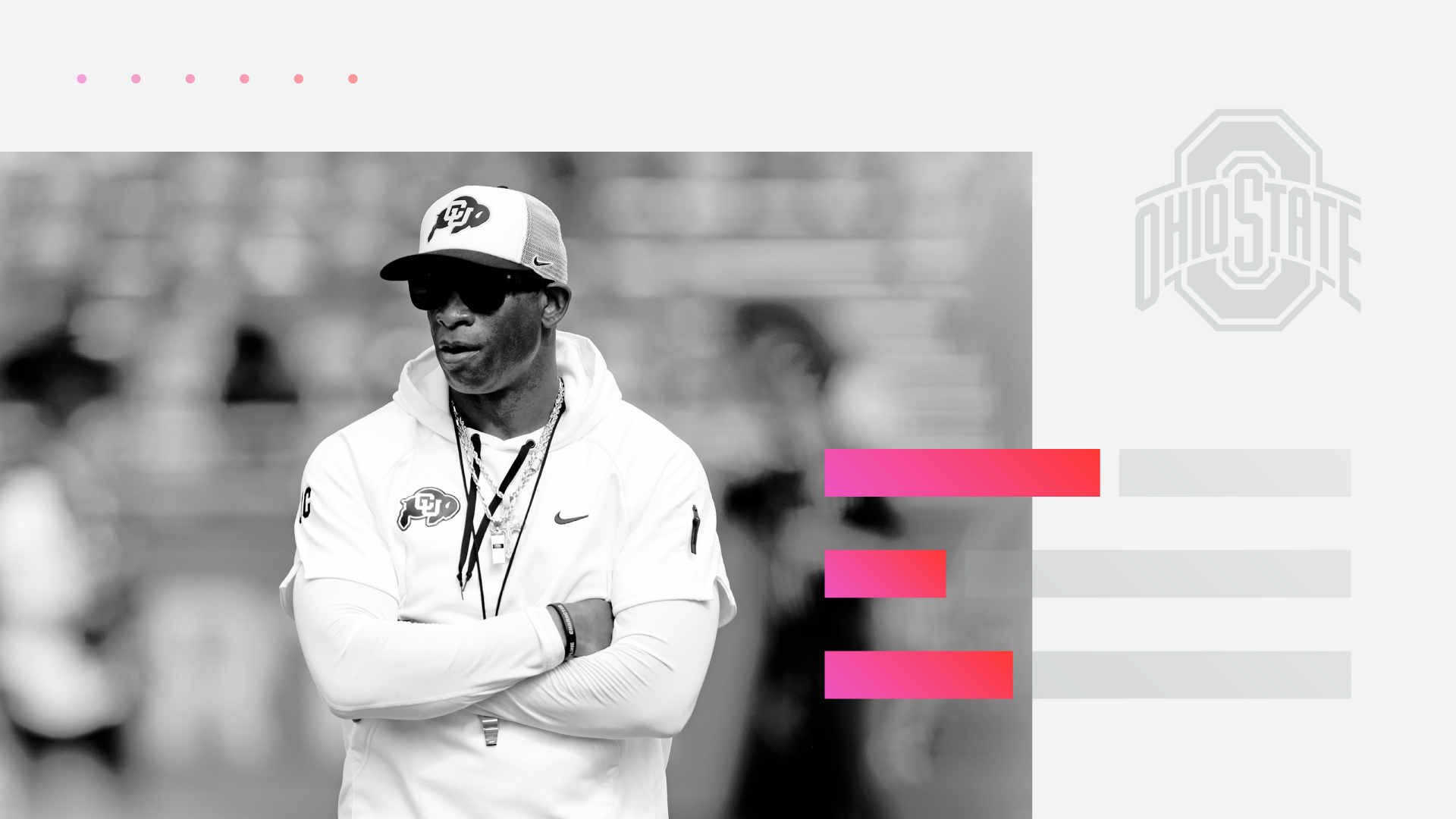Why the College Football Playoff Shouldn’t Stop Expansion at 12 Teams
Survey conducted Oct. 18-20, 2023, among a representative sample of 2,201 U.S. adults, including at least 1,235 self-identified college football fans and 1,642 self-identified sports fans, with unweighted margins of error of up to +/-3 percentage points.
Key Takeaways
4 in 5 college football fans said they are interested in next season’s expanded College Football Playoff format, while 64% of overall sports fans said the same.
Given fans’ interest in the new 12-team format, the opportunity to further expand to include 24 teams should only stand to benefit media rights holders, sponsors, student-athletes and the schools themselves.
For our latest sports data and analysis, sign up for our daily briefing.
A decade after the inaugural College Football Playoff ushered in a new era for the sport, the postseason will once again change in 2024, expanding from four teams to 12.
New Morning Consult data underlines the huge appetite fans have for the 12-team tournament. It’s also easy to see that further expansion, such as a 24-team playoff, is a prime financial opportunity not to be passed up.
Among self-identified college football fans, 80% said they are either “very” or “somewhat” interested in watching the 12-team postseason, while 64% of sports fans said the same. Only 7% of college football fans said they are “not interested at all” in viewing the revamped playoff.
With reports that the new College Football Playoff could command over $2 billion annually after ESPN’s broadcast rights lapse following the 2025 campaign, adding more teams and games would only translate to more media rights dollars down the line and increased commercial opportunities for all college football stakeholders.
Specific demographics at scale: Surveying thousands of consumers around the world every day powers our ability to examine and analyze perceptions and habits of more specific demographics at scale, like those featured here.
Why it matters: Leaders need a better understanding of their audiences when making key decisions. Our comprehensive approach to understanding audience profiles complements the “who” of demographics and the “what” of behavioral data with critical insights and analysis on the “why.”
Given its short history, the College Football Playoff is still working to grow its brand to the level of March Madness. While having 64 teams like college basketball’s postseason tournament could raise concerns about logistics and watering down the product, expansion to 24 teams seems reasonable. It also feels obvious: To throw more teams in the mix should only increase engagement with both young and old fans, and likely lead to sold-out games filled with traveling alumni and students.
Last season’s TCU-Georgia championship blowout drew disappointing ratings, but the lack of star power and intrigue feels like a major reason why. And there have been recent bright spots, too: The 2022 Alabama-Georgia national championship game had nearly 22.6 million viewers, making it the third most-watched non-NFL broadcast of the year, while last year’s semifinals (featuring college sports fans’ favorite football program, Ohio State) saw a 28% year-over-year viewership surge. Moreover, in 2023, five of the top 100 English-language TV broadcasts were college football, only trailing the dominant NFL.
More CFP games, more sponsors
A further expanded postseason also presents more sponsorship opportunities. For a sport that counted 13 sponsors for its more recent title game, each new round and matchup offer paths to branding and marketing opportunities, like how AT&T has been the presenting sponsor of the College Football Playoff national championship since 2015.
These high-stakes games are also platforms for student-athletes to potentially become stars, either in the near future in the NFL or via name, image and likeness deals if they stay in school. Brands on the hunt for their next football pitchman could find him sooner if the player has more opportunities to shine under the bright lights of an expanded College Football Playoff.
Mark J. Burns previously worked at Morning Consult as a sports analyst.


